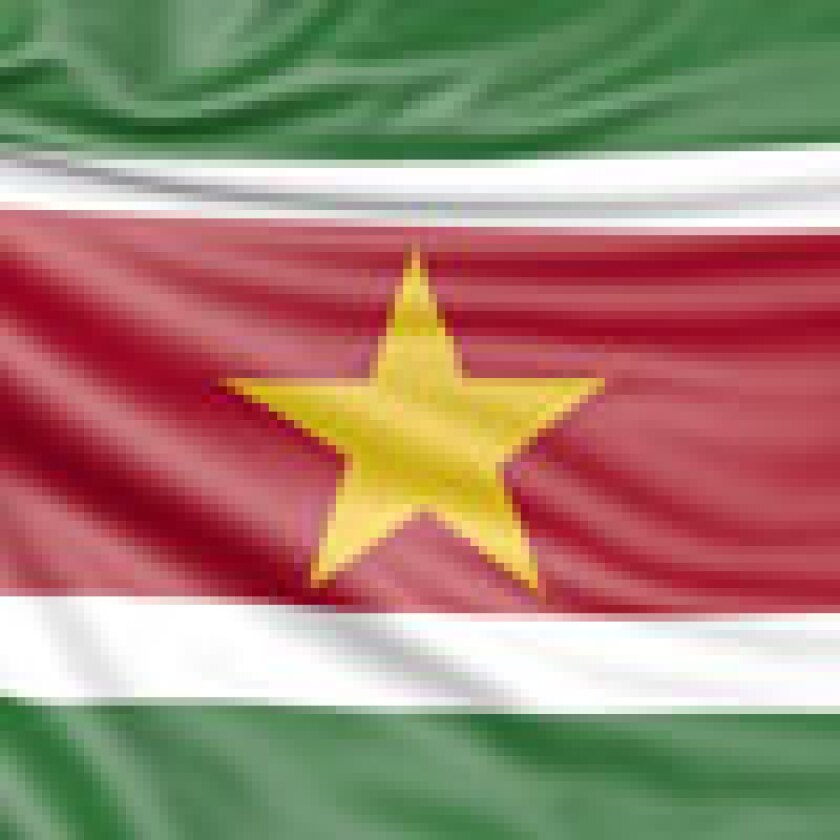
Suriname’s government is preparing a package of legislative changes to revamp its economy after coming close to bankruptcy two years ago. South America’s youngest nation, Suriname got caught up in the sharp decline in commodity prices, as gold and oil prices dropped, and its aluminium business, once the staple of the economy, closed.
“We faced bankruptcy. Revenue from our commodity exports in 2015 was just 10% what it had been. Just imagine your salary going down to 10% of what it used to be,” finance minister Gilmore Hoefdraad told Global Markets.
The International Monetary Fund (IMF) stepped in with a $478m loan in May 2016 and the sovereign debuted in October 2016 with a $550m bond that was oversubscribed three times.
The government is now working on a complex list of tax and policy changes to boost revenue and get ready for the next boom in commodity prices.
Hoefdraad said a new value added tax (VAT) should be ready for approval by Parliament in August. He said the rate was still under discussion, but once the VAT was in place the country could move to a broader tax reform. The plan is to lower income tax and the capital gains tax.
“If the VAT happens it would be a significant step, because it would reduce dependency on commodities and shift to a more stable tax base,” said Joydeep Mukherji, managing director at S&P Global, which has Suriname at a B+ rating with a negative outlook.
In March the government created a new investment promotion agency, InvesSur, in charge of attracting foreign direct investment. The agency will be able to negotiate tax breaks and special conditions for imports to speed up investments.
Managing boom and bust
Another major step will be creation of a sovereign wealth fund, which was one of the commitments under the IMF programme. The legislation is in parliament, going through technical reviews in committees.
Mukherji said Suriname had been talking about a similar fund during the commodities boom early in the decade, but moved too late. “It would be good, because it would help manage boom and bust cycles,” he said.
Getting the fund in place should help manage revenue from a new $1bn gold mine built by US-based Newmont Mining. The government owns 25% of the company. Offshore oil exploration is also underway in the area zone where vast reserves have been discovered off the coast of neighboring Guyana. A new $1bn oil refinery built by the state oil company began operating at the end of last year.
A new public financial management law has been drafted and will be remitted to parliament in the first half of April. A new procurement law should be ready for lawmakers by the end of the month.
Moving on these changes is critical to guarantee investor confidence. “We will be watching with interest if then can get this done,” said Graham Stock, sovereign strategist at BlueBay Asset Management. “A key premise of the roadshow for the bond was the highly positive relationship with the IMF. It would be a big step forward if they make progress on these issues.”
The government’s relations with the IMF are not perfect. Suriname was slow in eliminating subsidies on electricity and getting fuel prices up to market value, two conditions required by the IMF.
“We told the IMF that, given the severity of the crisis, to avoid a total collapse of government and the economy we needed some breathing room. The IMF said no and we are currently in discussion,” he said.
Hoefdraad said he would meet with the IMF at the fund’s Spring meetings in April and expected a positive response. “Even with all the hiccups, we are moving forward. The future is bright, but we really need to tackle these issues in the short term,” he said.
